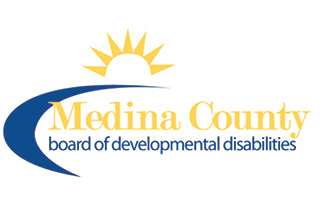Sponsored
Development Delay vs Disability; There is a Difference
If you are looking for more information or have questions about people with developmental disabilities, contact the Medina County Board of Developmental Disabilities (MCBDD) at 330-725-7751 or visit www.mcbdd.org.
Opinions and claims expressed above are those of the author and do not necessarily reflect those of ScripType Publishing.
It’s common for proud parents to talk about how quickly their children are meeting developmental milestones, such as walking and talking. If your child is not meeting milestones at the same rate as other children, it’s not always a reason to worry. Children do not develop skills on a strict timetable. Each child is unique. But it can be nervewracking to see or hear about other children passing milestones before your child. Such conversations may cause you to worry about possibilities of delays or disabilities in your child. Remember, there is much to look at before a child is found to have delays or disabilities and there are distinct differences between these two terms. While many people use the terms developmental delay and developmental disability as the same thing, they are not the same.
Delay
A developmental delay means a child is not meeting expected milestones and is continually behind in gaining skills expected by a certain age. Delays can show up in the way a child moves, communicates, thinks, learns or behaves with others. As a general guide, you might be concerned about a delay if you notice that, over several months, your child is not developing multiple motor, social or language skills at the same rate as other children the same age. Causes of delays may be hard to determine, while others may be caused by things beyond a family’s control. For
example, a speech delay can be caused by temporary hearing loss from multiple ear infections. Children may outgrow or catch up from a delay. Developmental delays might be short term, or the first sign of a long-term concern.
Disability
A developmental disability is a chronic problem resulting from a mental or physical impairment, or both. Children with disabilities find it difficult to perform daily activities such as moving, learning, and communicating. These disabilities typically begin between birth and age 22, and last throughout a person’s life. Examples of developmental disabilities include autism, brain injuries, cerebral palsy, Down syndrome or other cognitive impairments. While developmental disabilities are lifelong, children with developmental disabilities can still make progress, grow and thrive. Early Intervention is Key to Addressing Concerns It may be hard to determine if a young child has a delay or a disability; that’s one reason people tend to use the words interchangeably.
Regardless of the term used, if you have a concern, trust your instincts and talk to your doctor or other family health professional. They are able to help assess your child’s situation, or refer you to early intervention professionals who can help. Early Intervention evaluation and services are vital in helping families address developmental issues for better long-term outcomes. The Medina County Board of Developmental Disabilities Early
Intervention Services finds resources for families to get children back on track.
For more information contact the Medina County Board of Developmental Disabilities at 330-725-7751, option 1 or Ohio Early Intervention Services at 1-800-755-GROW.

